Anthony Albanese handballs Indigenous treaty pledge to states
Anthony Albanese has passed the political minefield of treaty onto the states as he reframes his Indigenous affairs agenda following the failure of the voice.
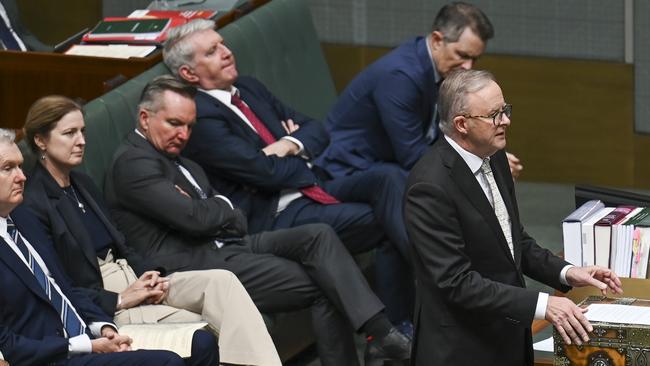
Anthony Albanese has passed the political minefield of treaty onto the states as he reframes his Indigenous affairs agenda following the failure of the voice, revealing Labor will “take the time needed” to establish a truth-telling body and put its immediate focus on practical issues such as jobs, education, housing and justice.
Handing down the annual Closing the Gap report, which revealed only four out of 19 goals were on track to be met and four were going backwards, the Prime Minister said the government must find a better way to improve the lives of Aboriginal and Torres Strait Islander people.
Mr Albanese said the government would work towards creating a Makarrata commission, a key plank of the Uluru Statement from the Heart aimed at elevating Indigenous stories in the telling of Australian history.
The intention of the Makarrata Commission was also to oversee treaty making, but Mr Albanese said this process was being handled by the states and his government would “respond to their progress”.
The comments were interpreted by Indigenous leaders as a delay in establishing the Makarrata Commission, despite Mr Albanese saying on election night he would implement the Uluru Statement in full. The Uluru Statement comprises an Indigenous voice, treaty and truth telling.
The government is refusing to provide a time frame for when it intends to establish the truth-telling body, despite committing $5m towards the process in the budget.
There was also criticism from Indigenous figures for leaving treaty-making in the hands of the states, given the Coalition had walked away from supporting the process in Queensland and Victoria since the failure of the voice referendum.
Mr Albanese delivered his speech in parliament after telling a meeting of Labor MPs they should be proud for taking the voice to a referendum. “This government remains determined to move reconciliation forward and seek better results for Indigenous Australians,” he told parliament.
“As we take the time needed to get Makarrata and truth-telling right, the work of treaty goes on at a state and territory level. There will be a diversity of processes, reflecting the diversity of First Nations across the continent.
“And we will respond to their progress while focusing on our immediate responsibilities: Closing the Gap, self-determination and tangible outcomes, particularly in jobs, housing, education, health and justice.”
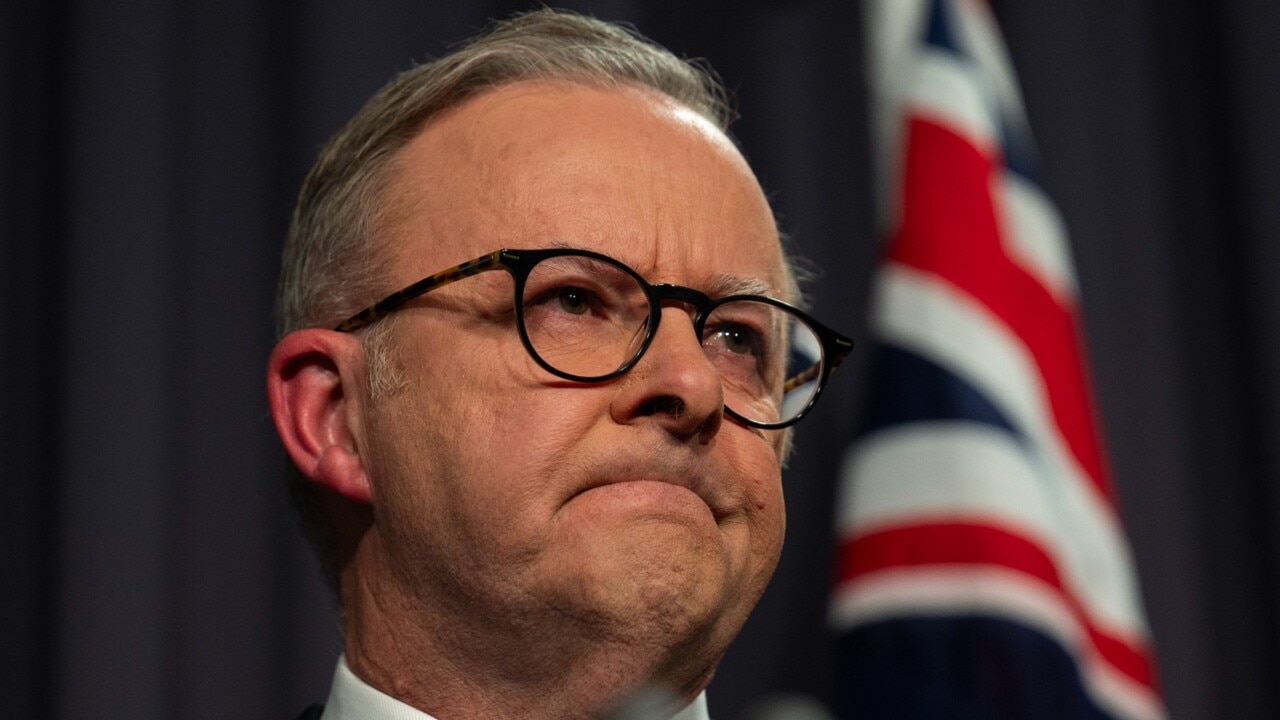
A prominent supporter of the Uluru Statement – Uluru Dialogue member Eddie Synot – said Mr Albanese’s speech in parliament on Tuesday appeared to be a “poor excuse for inaction”.
“It’s time for leadership and the government should be leading on Makarrata and on a legislated voice,” said Mr Synot, an Indigenous man and lecturer at Griffith University school of law.
“People voted against a voice in the Constitution, not the voice entirely.”
Mr Synot said leaving treaties to states was not a good move because those processes were under threat from oppositions that did not support them.
“Here we have a perfect opportunity after the referendum for the PM to step up,” Mr Synot said.
“Saying that we are going to take our time is just a poor excuse for inaction.”
The debate over Labor’s agenda comes amid uncertainty over the future of Indigenous Australians Minister Linda Burney, with senior NSW Labor faction figures preparing to fight over her replacement in the seat of Barton.
Senior figures of the NSW Left and Right factions said there had been discussion within the party over whether this term would be Ms Burney’s last.
“I am incredibly busy,” Ms Burney said. “I’m very honoured to be doing the job that I’m doing and I intend to keep doing that job.”
The 14th Closing the Gap report showed only four of the 19 socio-economic outcomes for Aboriginal and Torres Strait Islander peoples were on track to meet their targets, including a reduction in the number of young people in detention, an increase in preschool enrolments, better employment rates and a growth in the areas of land subject to Indigenous rights and interests.
A further 11 outcomes are slowly improving, but are not yet on track to be achieved.
Some of these targets include children being born healthy, students achieving their full potential and Indigenous people being able to access affordable housing in line with their needs.
And four outcomes have worsened: children’s early development, rates of children in out-of-home care, rates of adult imprisonment and suicide.
Mr Albanese also announced a national commissioner for Aboriginal and Torres Strait Islander children and young people would be established. The commissioner would be dedicated to protecting and promoting the rights, interests and wellbeing of Indigenous children, with an interim commissioner to be appointed this year.
Mr Albanese, who also unveiled a $700m Indigenous jobs package, said it was clear the status quo was unacceptable. He said Canberra “must be willing to share power” with Indigenous communities in order to Close the Gap, but made no mention of legislating a national voice or backing local and regional voices.
“If we want to Close the Gap, we have to listen to people who live on the other side of it,” he told the lower house.
Peter Dutton said the government needed to be more specific about its plans to provide more jobs and housing for Indigenous Australians.
“It’s too important to allow it to be an aspiration not achieved,” the Opposition Leader said.
“From which sectors, industries and employers will these jobs come? What infrastructure is, or will be put in place to support these jobs – and will that require additional funding? And, if so, how much?”
Mr Dutton renewed calls for the government to implement a Royal Commission into Child Sexual Abuse in Indigenous Communities and for an audit into spending on Indigenous programs.

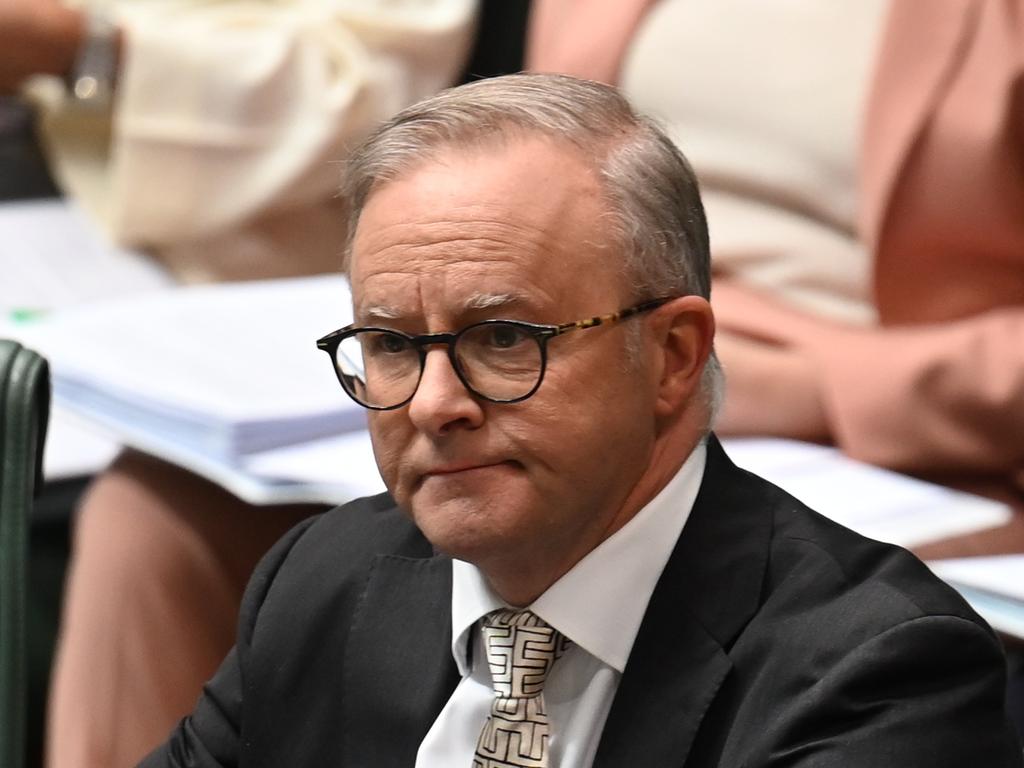
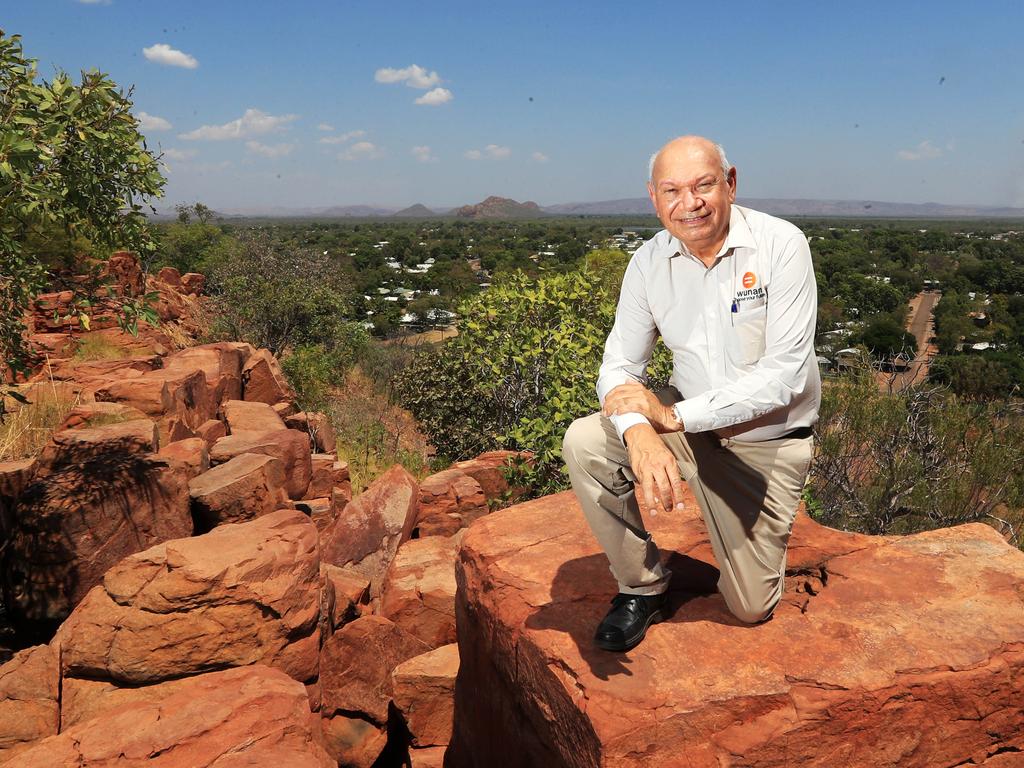
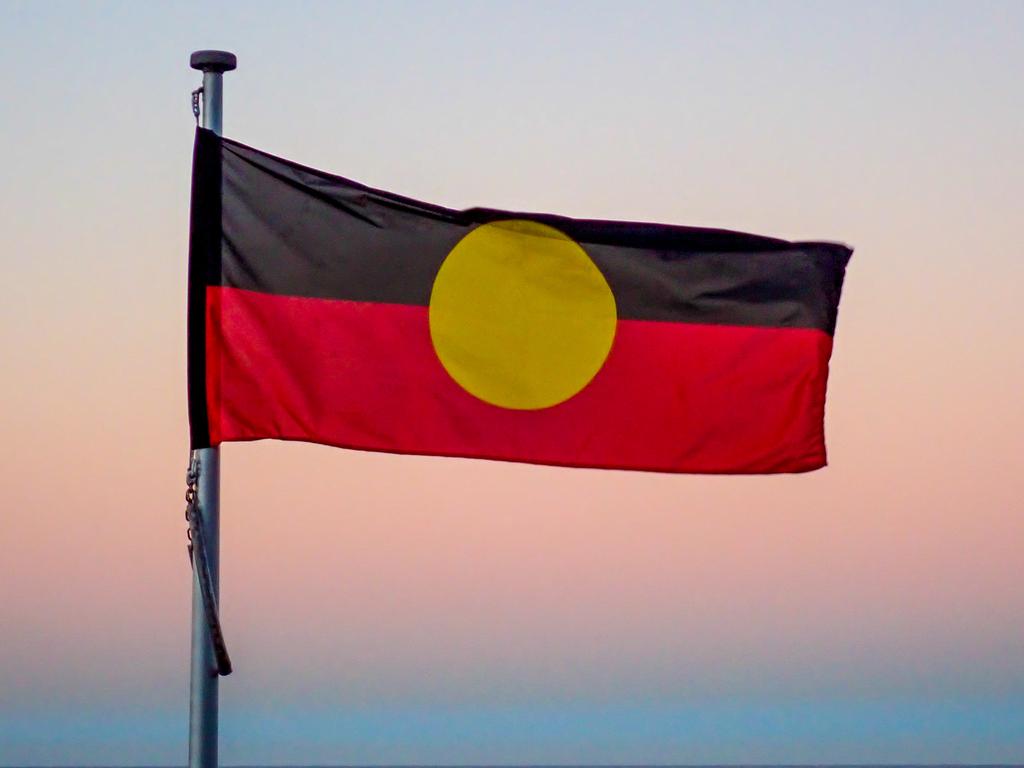

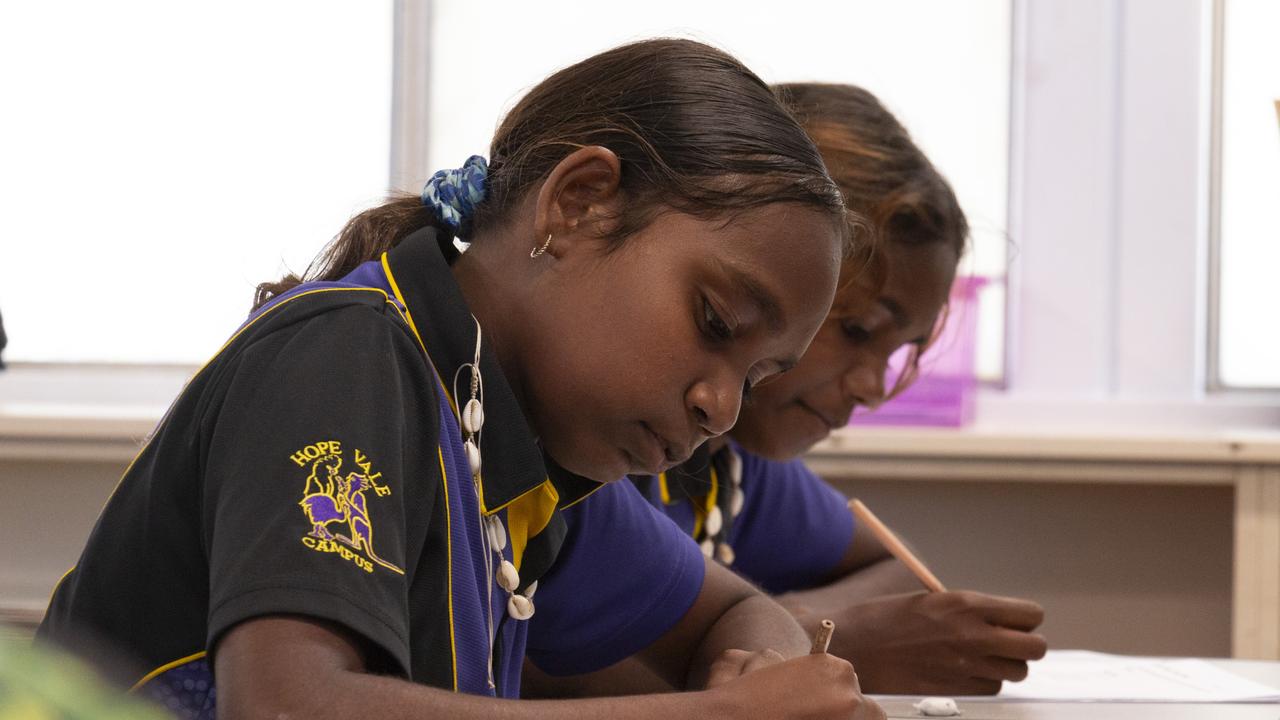
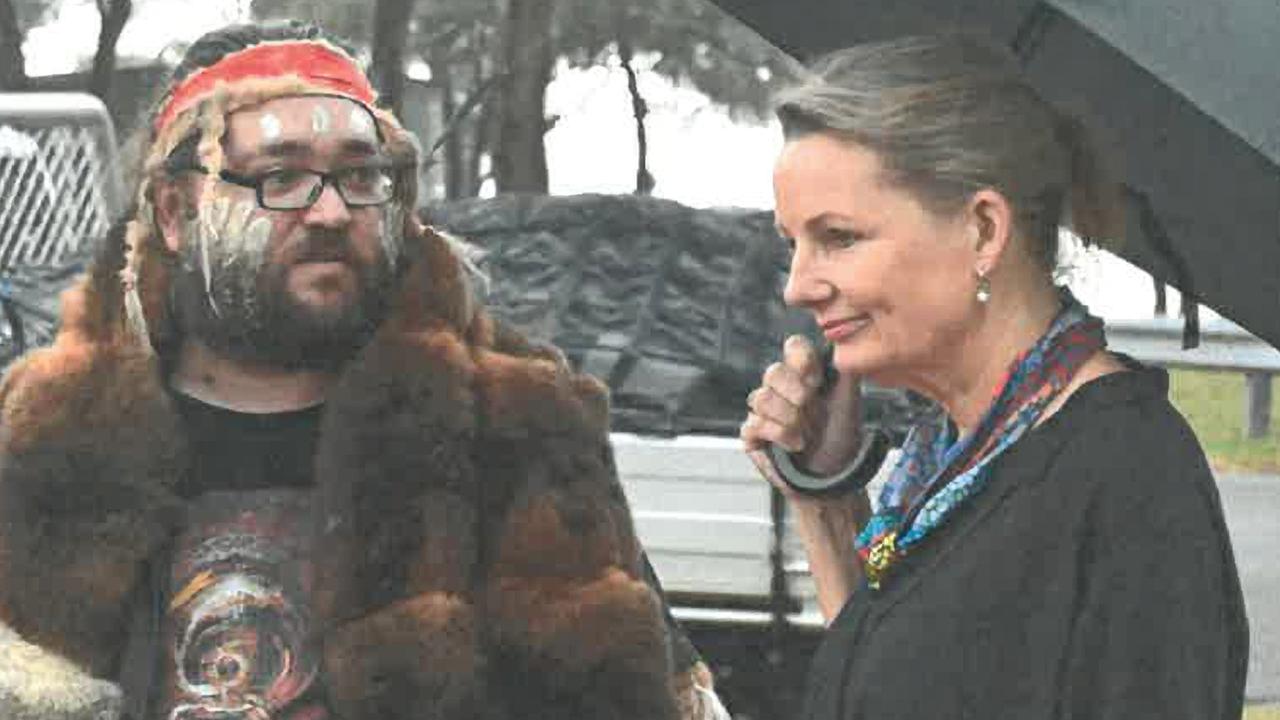
To join the conversation, please log in. Don't have an account? Register
Join the conversation, you are commenting as Logout